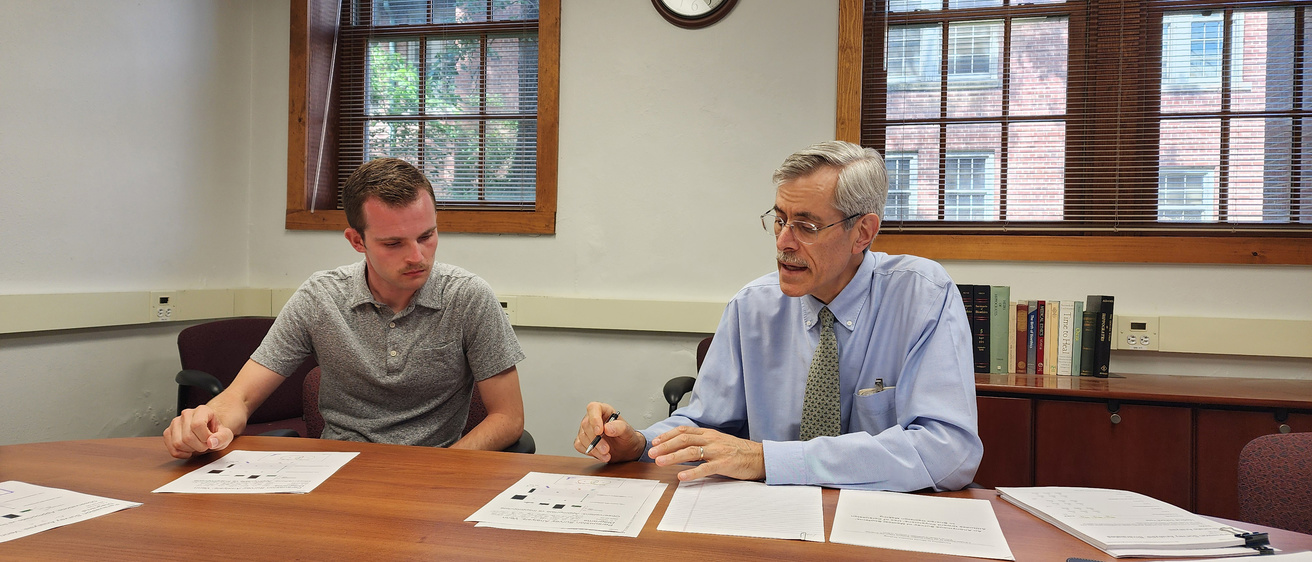Core Ethics Curriculum
Biomedical Ethics Thread (Core Ethics Curriculum)
The Program in Bioethics and Humanities offers the Carver College of Medicine's core ethics curriculum.
Elective Opportunities
Personal-Professional Compass Program (longitudinal)
The purpose of the Carver College of Medicine Personal-Professional Compass program is to help medical students understand, articulate, and integrate their personal and professional values and goals as they navigate their way through the four years of medical school. This program will promote students’ growth as humanistic professionals through written reflections on personal experience, readings from the literature of medicine and the humanities, and ongoing dialogues within a community of peers and mentors. Written reflections will culminate in the capstone project of writing a fourth-year personal statement for residency applications.
Bioethics and Humanities Seminar (fall semester)
The Bioethics and Humanities Seminar is an elective 1-credit course that provides an introduction to topics and themes that are central to bioethics and the humanities in the context of medicine. The course provides considerable breadth through the number of topic areas it covers. It also prioritizes dialogue through small-group discussion, which explains why the class is limited to 12 students in the hope that everyone can regularly participate. Priority for enrollment is given to students at the Carver College of Medicine (CCOM), and then to other students at the University of Iowa (by permission of the instructor).
The Seminar covers a diverse but inter-connected range of topics, including ethical theory, different approaches to ethical reasoning (principles, virtues, consequences), clinical ethics, professionalism and humanism, moral agency, ethical pluralism, ethics in relation to cultural diversity and global health, historical examples of research abuses, technology and the future, narrative ethics, and the use of stories in medicine. Throughout the Seminar, students are encouraged to discuss the real-world relevance of ideas by applying ethical insights to challenges encountered in clinical care.
Foundations in Healthcare Ethics (fall semester)
This is a 3-credit, 15-week, reading-intensive course which students review major ethical traditions, frameworks, and ideas that have shaped contemporary approaches to healthcare ethics in morally pluralistic Western cultures. Topics include four prominent frameworks in healthcare ethics (virtue-based, principle-based, circumstance-based, and consequence-based) which emphasize four aspects of ethical decision making (agent, action, context, outcome). Through written reflections, weekly class discussions, and a final paper, students engage ethical concepts, translating from ethical theory to ethical practice by applying foundational beliefs and values to concrete challenges in clinical practice.
Editorial Writing For Medical Students (advanced elective)
This course will allow students to understand and practice the skill of writing Opinion Editorials aimed at improving the public’s understanding of health and healthcare. Students will learn how to effectively engage a broad, non-medical audience through their writing, with the goal of producing an Opinion Editorial piece that could be submitted for publication to a local or national newspaper.
Oaths and Ethics (advanced elective)
This is a 4-week Course intended to help students appreciate the meaning and significance of a medical oath. The Course will examine oaths as promise statements that are highly personal, deeply ethical, and broadly professional, with attention to the principles, commitments, and virtues that are essential in medical practice. Examination of this ethical content will be facilitated by considering traditional medical oaths (e.g., versions of the Hippocratic Oath and the Declaration of Geneva), codes of ethics (e.g., the AMA Code of Ethics), contemporary statements such as the Physician Charter, and virtues that are central to the moral foundations of medicine. This examination will also be enhanced by observing and reflecting on ethics-related seminars, as well as interviewing a non-medical person regarding the ethical values that ought to be in a medical oath.
Student Award Opportunities
Carol A. Bowman Creative Writing Contest
The purpose of the contest is to stimulate student writing and thoughtful expression of the many and new experiences students encounter while in medical school.
Robert D. Sparks Writing Contest
The purpose of this contest is to examine the influences of history, ethics, culture, literature, philosophy, sociology, or related frameworks on medicine, the practice of medicine, and the human condition.

